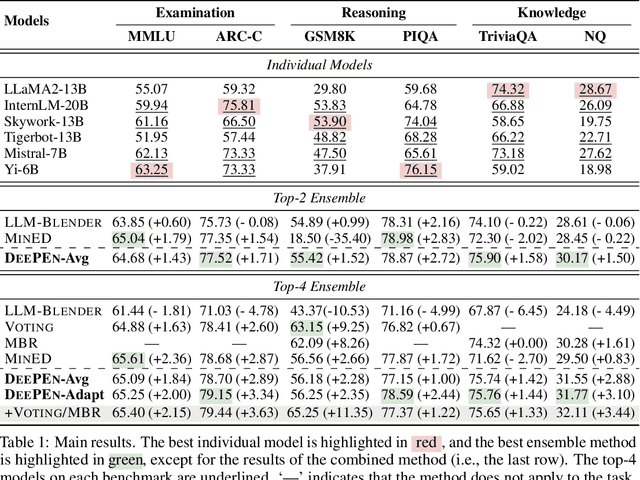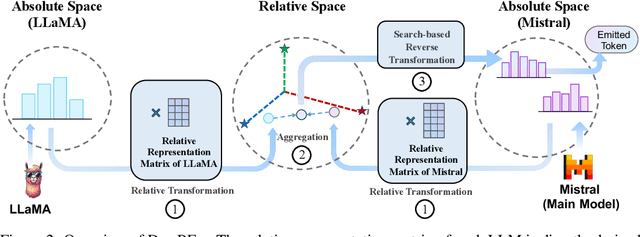Enabling Ensemble Learning for Heterogeneous Large Language Models with Deep Parallel Collaboration
Paper and Code
Apr 19, 2024



Large language models (LLMs) have shown complementary strengths in various tasks and instances, motivating the research of ensembling LLMs to push the frontier leveraging the wisdom of the crowd. Existing work achieves this objective via training the extra reward model or fusion model to select or fuse all candidate answers. However, these methods pose a great challenge to the generalizability of the trained models. Besides, existing methods use the textual responses as communication media, ignoring the rich information in the inner representations of neural networks. Therefore, we propose a training-free ensemble framework DEEPEN, averaging the probability distributions outputted by different LLMs. A key challenge in this paradigm is the vocabulary discrepancy between heterogeneous LLMs, which hinders the operation of probability distribution averaging. To address this challenge, DEEPEN maps the probability distribution of each model from the probability space to a universe relative space based on the relative representation theory, and performs aggregation. Then, the result of aggregation is mapped back to the probability space of one LLM via a search-based inverse transformation to determine the generated token. We conduct experiments on the ensemble of various LLMs of 6B to 70B. Experimental results show that DEEPEN achieves consistent improvements across six popular benchmarks involving subject examination, reasoning and knowledge-QA, proving the effectiveness of our approach.
 Add to Chrome
Add to Chrome Add to Firefox
Add to Firefox Add to Edge
Add to Edge